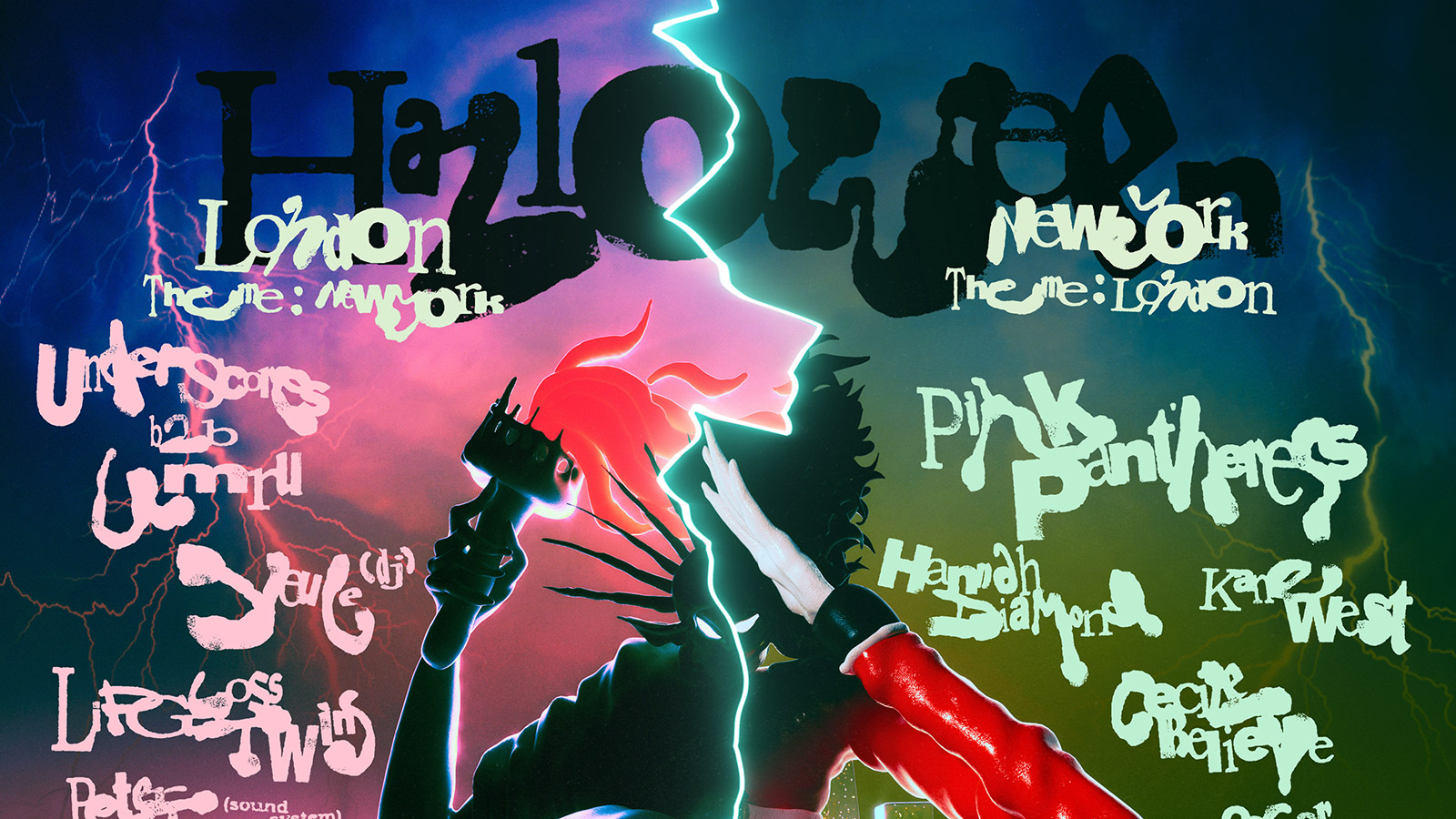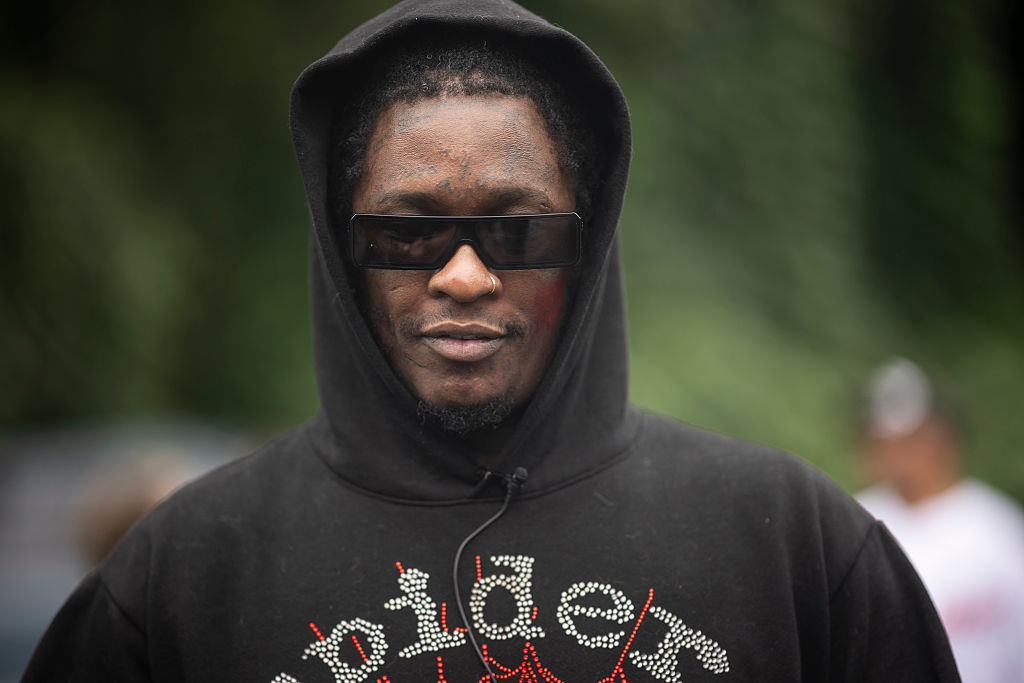When promoting a second album, artists typically like to flex that they made an entirely different body of work than their debut.
It might be due to the fear of the ‘sophomore slump’ or the bragging rights that come when one can say they metamorphosed into something entirely new. It’s an opportunity to prove that you aren’t a one-trick pony. For Cian Ducrot, though, album two wasn’t about reinvention — it was about rediscovery and learning to trust himself.
“My first album was really personal,” the Irish singer-songwriter reflects. “It was very much this idea of, ‘I went through all of these unique, terrible experiences and I know there are other people out there going through them, so hopefully this is the album that will find those people who have struggled with those things.’ The purpose was entirely to help some kid or adult who is going through what I went through. I've always liked to do something that feels like it has purpose. It's just about finding what that purpose is and how it changes with time and as I grow up.”
His debut album, Victory, was created in a bit of a rush. Being on a major label was a blessing and a curse — he had the world at his fingertips with access to studios, writers, and beyond, but was feeling the constraints and pressure. “I didn’t have much time to change or really figure out what I was going to do,” he admits. “It was kind of like, 'You have one month — just write the songs, and that’s going to be it.’”
It’s not exactly groundbreaking for an artist to say an album was crafted during a time of self-discovery, but for Ducrot and Little Dreaming, it became a lifeline of sorts. “Little Dreaming was a very long journey of self-discovery and many things that I feel like I'm still on,” he says with a laugh. “It was pretty tough at times. It still is tough because you constantly question yourself — your choices, your decisions. I think I’ve probably made my life harder because I put a lot of the weight on myself. I executive-produced the album and very much oversaw the whole thing. It’s been [a process of] me and my opinion versus the label and exterior opinions.”
The crux of Little Dreaming lies in his creative control. Although his journey of self-expression seemed to always be the undercurrent of the record, taking on the reins of the album’s production forced Ducrot to explore and find different facets of himself. While Victory was boxed in by time constraints, Little Dreaming is the sonic embodiment of Pandora’s Box opening up — equal parts expansive and unpredictable. It’s on this album where, instead of trying to do a repeat of his last album, he asked himself: “What do I actually want to say?”

Rather than just allowing inspiration to strike, Ducrot puts himself in the way of it. He went out of his comfort zone to write in different places — by himself, with friends, on a mountain top or just at his kitchen table. What Ducrot is proud of most, though, is that he isn’t afraid of looking like he’s trying. “I love producing the music, and I love working with people who are on the same wavelength, where we can just make this stuff that feels like we tried. It sounds like people tried to make something great.”
I mention Timothee Chalamet, who, when accepting his SAG award for A Complete Unknown, declared that he wanted to be "one of the greats" in acting. Naturally, the internet immediately went into hysterics at the thought of someone trying to achieve something. “I think it’s easy to brush over effort,” Ducrot states in response to Chalamet’s speech. When creating Little Dreaming, he tried to do as many new things as possible — like writing over trap beats even if it wasn’t going to influence the album whatsoever. “I went on loads of journeys like that. We’d spend a few days on a song and wonder where we would be taking it. I love listening to great albums where you can tell there were all these ideas and they spent time crafting great bass lines and great chords to create something great.”
There is a cathartic element that ripples throughout Little Dreaming. Although the record is released on the same label as Victory, he was able to take more time with its follow-up. So much time that he tried something new for the first time in his life: writing without an instrument. “It sounds small, but it’s a very different thing for me,” he confesses. “I’ve always been a musician first — always looking for inspiration in chords and harmony. But now I’m just writing about the world, what I see around me, how I feel — almost like keeping a diary.”

Songwriting tends to act like a mirror, confronting the little hidden truths someone hasn’t accepted yet. On “Break My Heart,” Ducrot doubles down on that same concept, which would inevitably become the catalyst to the entire record. “It’s the first one I wrote for the whole album. At that time, I was in a place where I wanted to go inward a lot more — I just wanted to look in at myself and it's easier to dress that with melodies. Sometimes it’s like a premonition of your life. I think it was Bruce Springsteen who said it, but he said sometimes you don’t even know where it comes from. We’re just songwriters — that’s where these things come from. But it’s always real. It’s always from the truth. It’s always a reflection of my family, my place in my family, my place in a relationship.”
On the opening track, there are layered mumbles of American accents attempting to pronounce the Irish singer-songwriter’s name before he declares, “It’s Cian B*tch.” The album’s closer, “See It To Believe It,” features Ducrot thanking people for being on this journey of self-discovery with him. “I want people to feel really close to me,” he says. “I hate when you listen to an album and just feel distant from the artist. There’s too much in the way, or it feels fake or overly polished. I didn’t want that. I wanted it to be as big and I wanted people to listen and feel like, “I get this person. I feel close to them.”
Despite the love for actively trying, Ducrot admits that much of Little Dreaming came together when he wasn’t thinking too deeply about it — particularly the beginning and end stages of making the album. He notes that these stages are always the “loosest” and “freest” stage, where you don’t know what could happen. He turned to other musicians to “rinse his brain” with music that was euphoric and renowned. “A lot of the time I’d put on 70s or 80s playlists, or just different genres, just to discover new sounds, new things, new songs. I was just trying to be subconscious about it. Whether it was Elton John or Queen or the Doobie Brothers or the Bee Gees or Fleetwood Mac... and then later on, I got really obsessed with Bob Dylan. That was all I was listening to.”
The first song that was inspired by that sonic journey was the gospel-induced “Shalala,” which orbits around hope and solidarity in times when the world needs it most. “That was before I even started listening to any Bob Dylan or any of that more folky stuff,” Ducrot states. “I started thinking, 'I need to go listen to some of these other artists and see if this is something they would have done.” And then I started to listen in and realised, “Oh, I really resonate with what these guys are doing.” I feel like that’s what I want to do [with “Shalala”].”
Some of the later songs on the album — “Unfair,” “Rock Bottom,” and “No Way To Live” — stemmed from listening to specific songwriters and storytellers. “Those three were written very much in the spirit of 'three chords and the truth.’ It’s been kind of a full-circle moment for me; realising I don’t always need to be really in-depth musically. I can just focus on the story I’m telling.”

Leaning into his self-expression eventually became a lesson in trusting himself and his work. His 2022 single “All For You” gained popularity on TikTok, a mournful, lovesick song that is typical fodder for male singer/songwriters. Still, pushing out the TikTok viral success and resisting the urge to chase virality through social media is something that has always driven Ducrot. He likens trying to write a viral soundbite to “drawing a lottery card” that has a poor return-on-investment.
“Chasing something 'successful' is pretty fleeting and pretty impossible. If I think I make something great, no matter what happens, nobody can take that away. It’s important to have a voice and have something to say. Otherwise, you might as well be a robot — or AI — making songs. If it’s just about the song being catchy and good, I think I won’t have a career, because a robot will be able to do that much better than me very soon. So I think it’s about having an opinion, and then sharing that opinion.”
After Victory came out in 2023, Ducrot had a moment where he questioned what he believed success to be. Earlier this year, he won his first Grammy Award for Best R&B song after co-writing SZA’s track, “Saturn.” One would assume that or the release of Little Dreaming would expand his perspective on success, but it’s been the process of writing and recording the album that allowed him to have a more humble view.
“If I were asking me as a 10-year-old, I’d be like, 'I made it.’ If it’s me at 15, maybe I made it then, too. But if it’s me at 20, probably not. I’d want to make it even more. [Success] also feels like it’s out of your control. You don’t even have control over your career, your success, your music, what does well, or what people want. We’re all chasing this “thing,” but at the crux of all of it… All we want is love. That’s what we’re after. And I think that’s the most important thing. If we just loved more — if we were comfortable loving our friends, loving our partners, our families — and sharing that love, we’d probably be so much happier. We wouldn’t need all those other things.”
A few years ago, when Ducrot and I first spoke, we discussed how artists have to be more than just humans standing on stage singing some songs. At the time, Ducrot believed true artists have something unique in how they are as humans and the things they have to say. Is that a sentiment he still believes in? “Yeah, I still think that’s true,” he says, touching on how Little Dreaming charts everything from him falling in love, growing up, and his best friend’s suicide.
“So many times, people aren’t real. They write some bullshit or sugarcoat it with some fancy metaphor. It doesn’t feel genuine. You’re not crying on the floor about someone you lost and thinking, “Set me on fire.” You’re thinking, “No, I fucking miss you, and I wish I had a beer with you.” That’s how you feel. That’s what I’m trying to do — be as real as I can, say what’s honest. Sometimes it’s beautiful, sometimes it’s not. But that’s all I can do. And hopefully, that connects with people.”

With Little Dreaming about to be released to the world, Ducrot is at peace with where both he and his music are. If Victory was meant to be his introduction to the world, Little Dreaming is more about him exploring all of the things about himself that he couldn’t find on his first record.
“This album has been a really interesting journey. It’s opened my eyes to a lot—like, what do I actually want to do with my music? Who do I want to affect? What do I want my music to do in the world? Do I just want to get rich and famous — which was never the goal — or do I want to move people, help them through what they’re going through? That was always the goal. But now it feels even bigger than that. I’ve realized the whole world could potentially hear your song. And if that happens—what do I want to say? What message do I want to put out there? That’s been a big takeaway from this whole journey, something I’m definitely carrying forward. I know not all music has to be that deep, but I think it’s important to do something with it. Whether that’s making the world a bit better, using your voice, bringing people together, giving hope — whatever it is.

 1 month ago
20
1 month ago
20


















 English (US) ·
English (US) ·